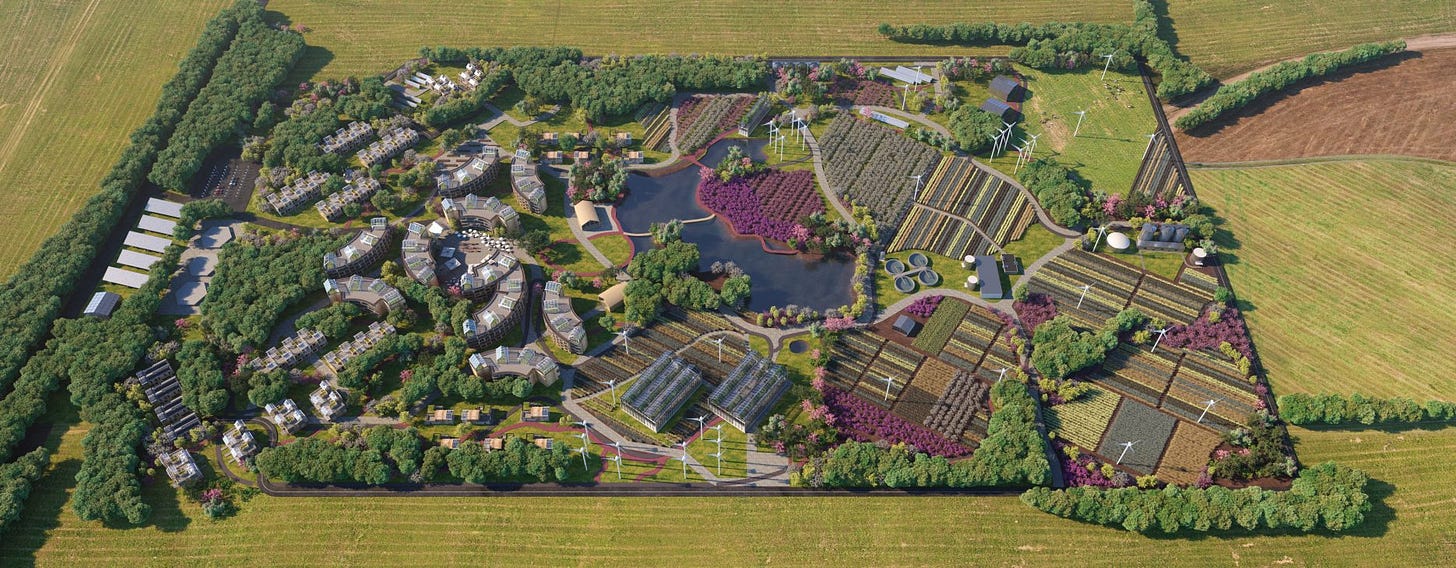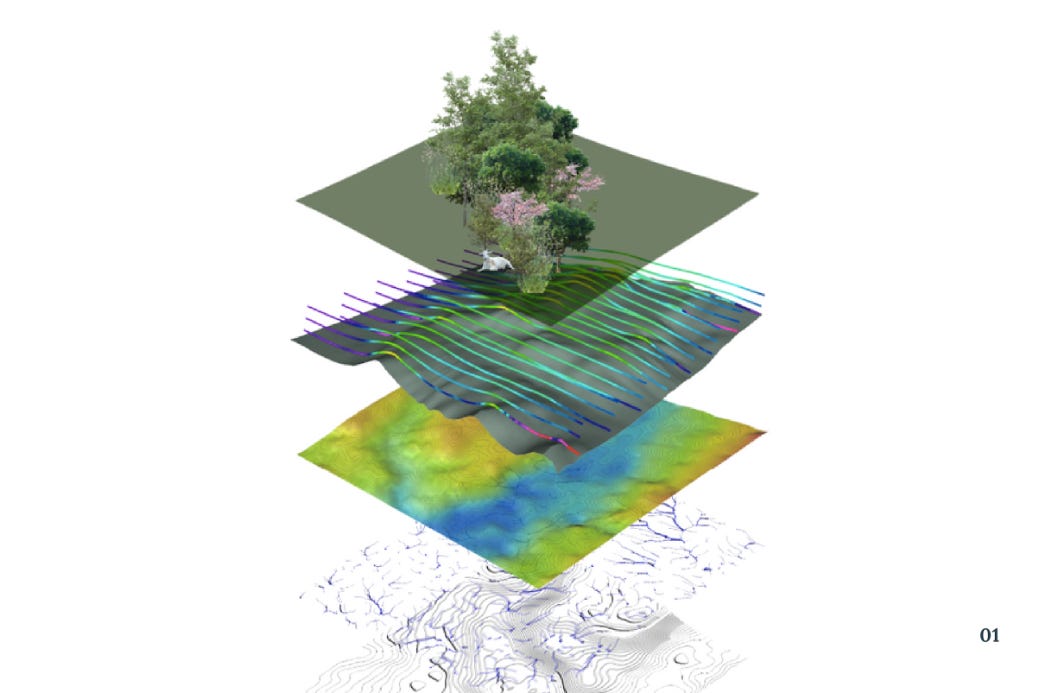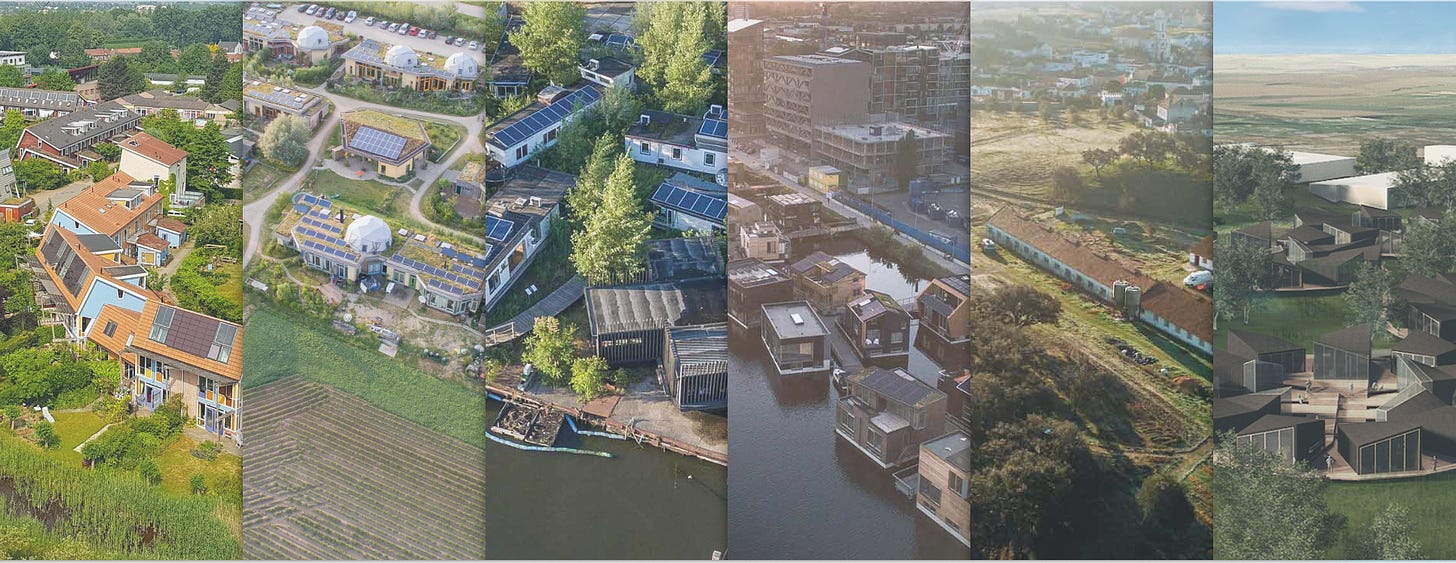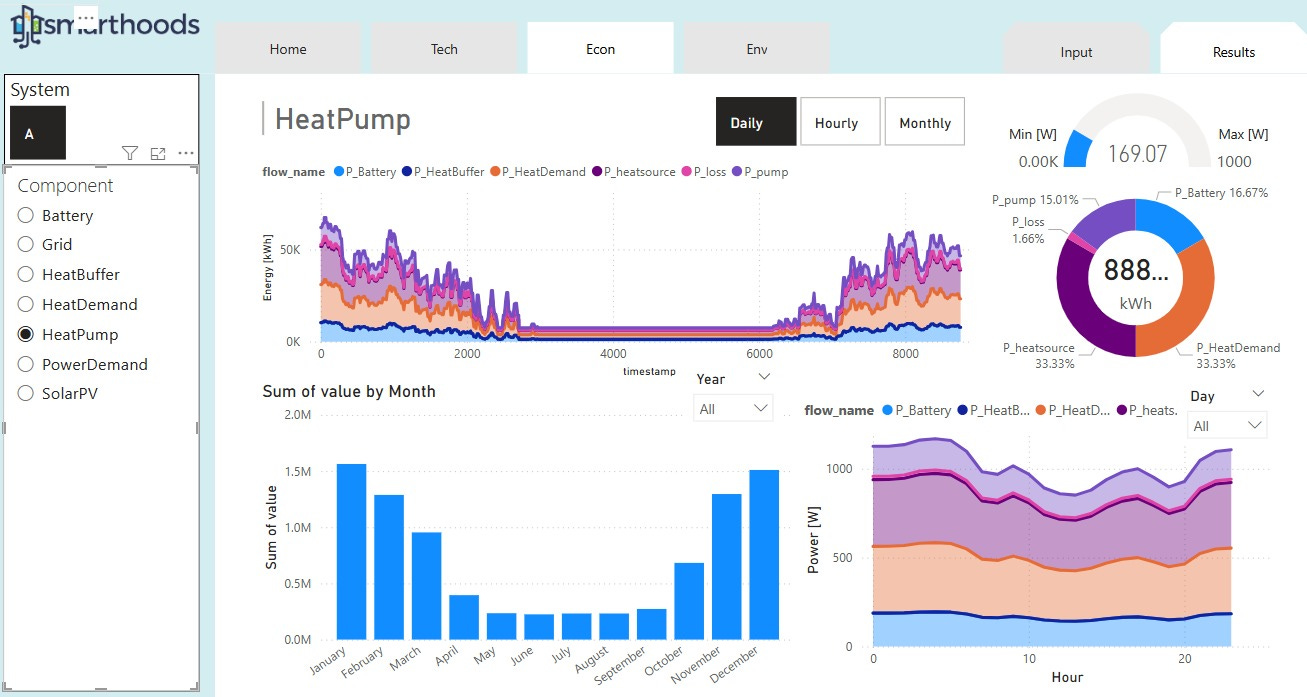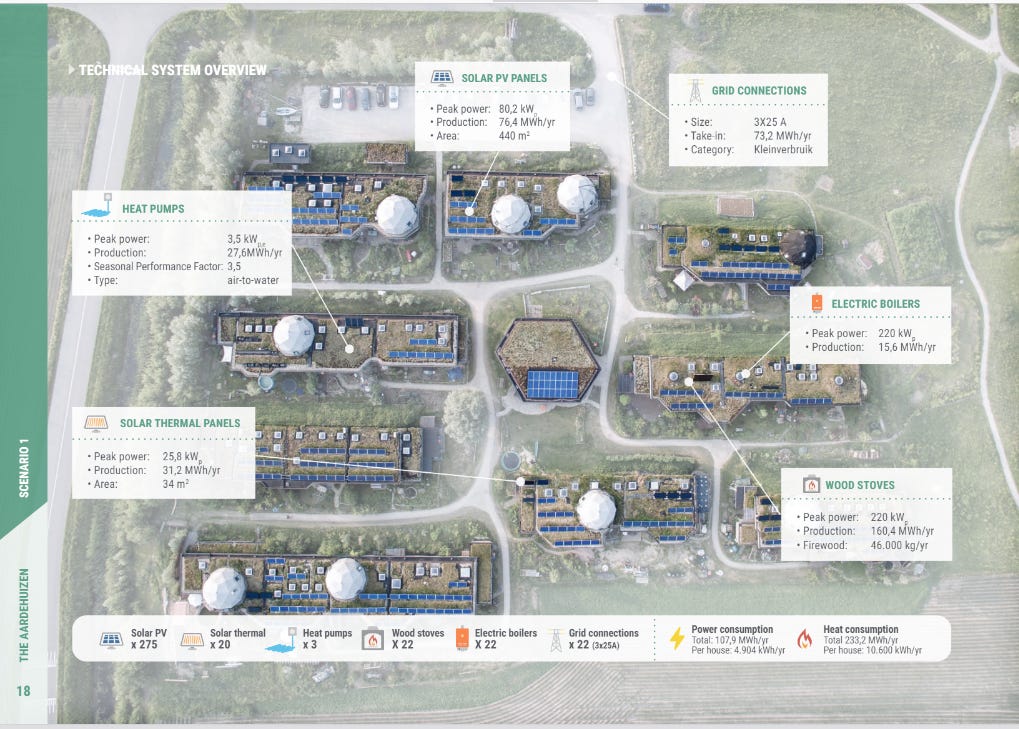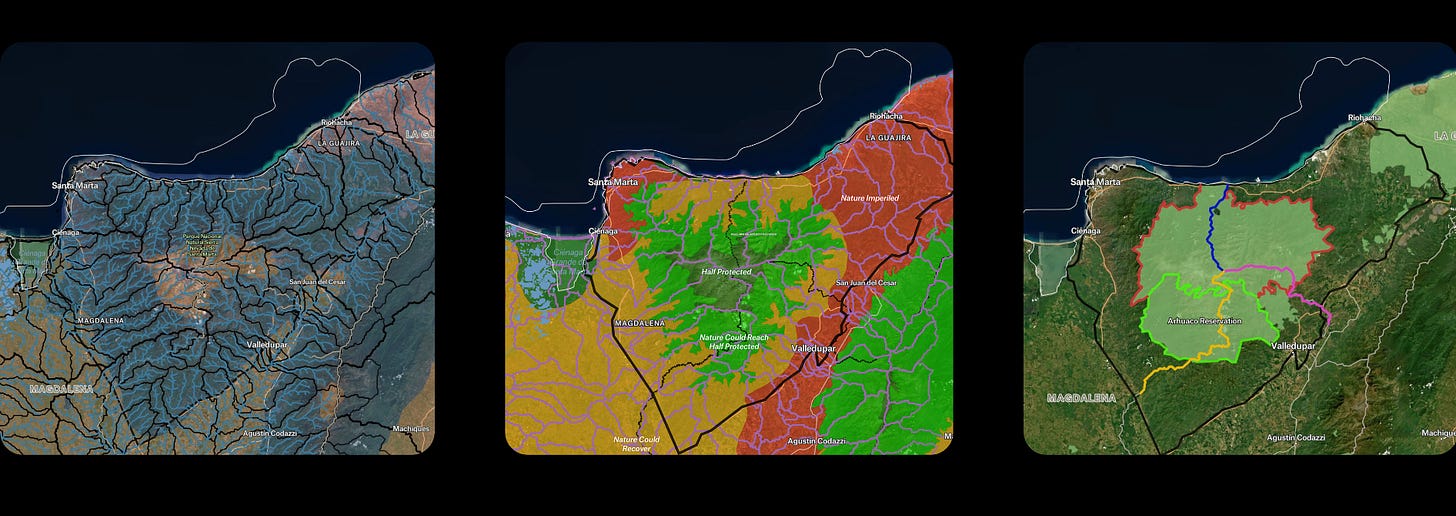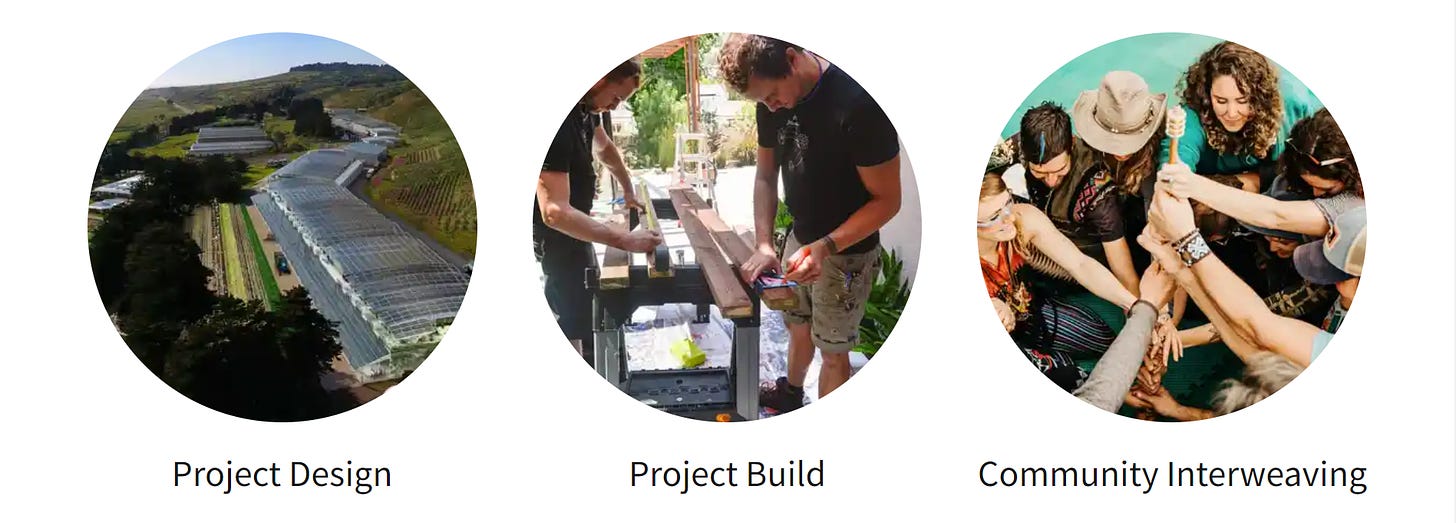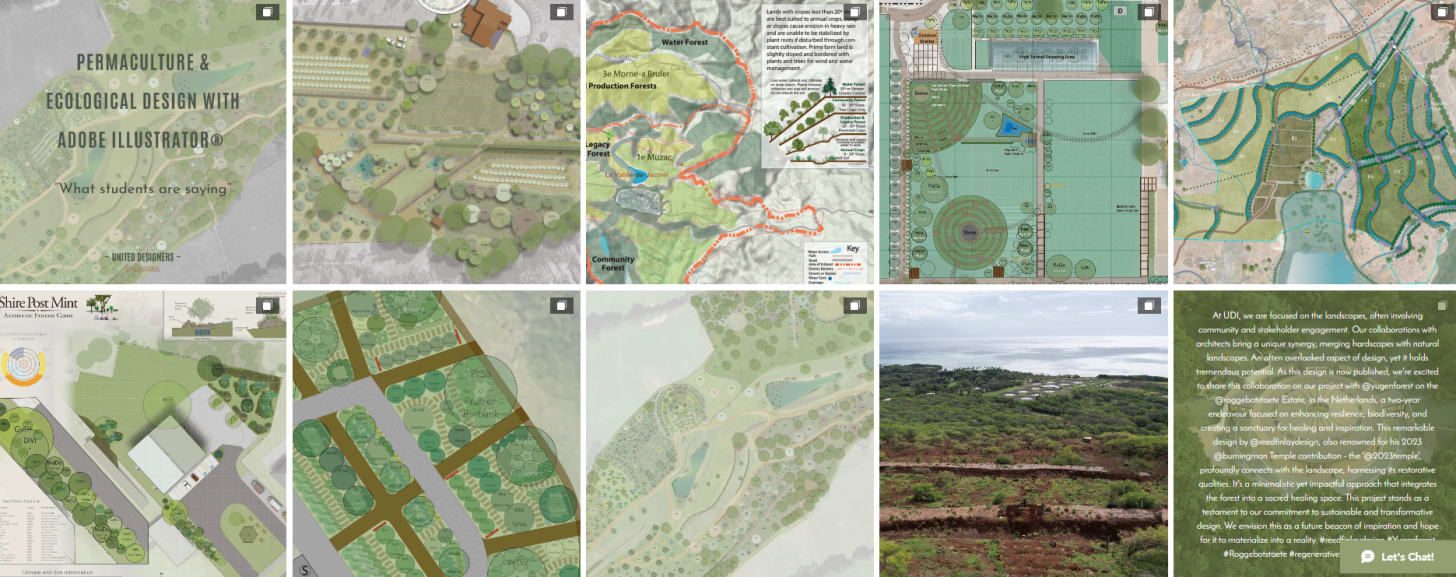Survey your land with these professionals
How to do a site analysis for your regenerative village
Where does any regenerative community really start?
The land.
Land speaks many languages, and gives many signals.
On August 2-9th I’m going to the Regenerative Alliance Summit in Colombia, and part of the programming is to learn to “read landscapes”, as led by the indigenous elders of the Kogi and Arhuaco tribes.
For due diligence in village creation, you need to analyze your site on many levels. This is best done by people who know how to read your landscapes. As part of Terrenity, I collect these resources for your benefit.
The Site Analysis Magicians
Here is a list of my favorite service providers who have these tools in their kit.
Rhyzo
RHYZO is a collective of biologists, architects, botanists, and adjacent experts that specialize in Portugal and Mediterranean bioregions. They are based all over Europe and they are the ones I’m using to help design the longevity smart village in Sardinia.
Things that we covered in our work together so far are identifying plant species, mapping the topography, and obtaining information about local permitting. They cover services from feasibility studies, to budgeting, to masterplanning (they really do it all)
In the process, we discovered an endangered flower endemic to Sardinia that would be cause enough to award conservation grant money to the project.
Juan Pablo Rodado, the founder, is an energetic mountains-mover. Not only did he enthusiastically support conversations with the land owners, he was coordinating a documentarian to visit to create a teaser of what we are doing, and connecting us with a grant hunter and writer.
Would absolutely recommend working with them.
SmartHoods
Built by the engineer,
, SmartHoods is a next gen way of designing and monitoring your resilient systems long-term.They offer comprehensive system design for circular neighborhoods, focusing on food, water, energy, and waste. Their optimization process considers multiple factors including system size, costs, performance, and environmental impact.
They survey your land and from a catalogue of 250+ regenerative management solutions, they select which ones are the best for you.
When I met Florijn during Regen Week, he gave me a demo of the platform that he custom coded for his clients. I was impressed.
After they design and install the solutions, they give you access to a dashboard that measures the efficiency and outputs of all critical aspects every hour.
You can model precisely how much rainfall, water consumption, food waste, etc. is created at what point in time, which helps you understand the systems better, leading to more optimal design and cost savings.
This kind of village tech allows village builders to:
monitor their system inputs/outputs to maintain optimal efficiency
prove their positive impact with hard data (hello funding!)
prevent issues in their circular systems before they become a real problem
This is who you would work with if you want to build a truly smart village.
Recommon
Recommon covers a very awesome niche — incredibly detailed bioregional mapping services.
ReCommon builds systems and tools to advance regenerative community development and bioregional impact initiatives globally. Their work is focused on the land itself - ensuring that it's acquired, stewarded, governed, accessed and utilized in ways to support resilient bioregional communities.
Their impact maps can be used for community engagement, agriculture, development strategy, and much more.
Founded by
, Chris Giersch, and Charlie Dubbe. Like me, Alex is a program lead for Blue Dot Project.For a Colombia project we are working on together, they created maps where you can alternate between GIS layers.
You can see mining activities, sacred sites, boundary of the indigenous reserve, cacao and coffee production sites, location of current tribes, status of degradation or biodiversity loss in different areas, location of headwaters, indications of major transport pathways, and on and on.
In one display, he showed how a large portion of land legally available for mining operation also represented a giant chunk of indigenous reserve. Oof!
The way they organize visual data is invaluable and highly persuasive in strategic regenerative development.
Regenerative Land Design Studios
Regenerative Pathways
Led by Nick Salmons, Regenerative Pathways is a multitalented company to contract for whole systems site design. For starters, they can help you search for and select properties based on your criteria (few people offer this besides Latitude!)
They cover everything from site design, masterplanning, project budgeting, project implementation, ecological construction, and community-scale infrastructure. I know Nick, and I know he is dedicated to a truly regenerative approach.
They even offer cultural events production to activate your land project and attract people. All deeply informed by regenerative land management frameworks.
Regenerative Design Solutions & United Designers
Regenerative Design Solutions was created by Eric Jan Bijl. His work consists mainly of site assessments, surveying, drone mapping, GIS analysis and design.
Eric is a partner of United Designers — a collaborative, inter-continental team of ecological designers and consultants that specialize in large scale regenerative land projects with local context.
They offer too many amazing services to list: drone mapping, topographic survey, GIS models, base maps, broadscale site assessment, soil food web analysis, agroforestry, watershed restoration and water harvesting systems, urban permaculture, landscape biodiversity, community aid design, climate resilience, holistic land management, and autonomous living, to name a few.
Collectively they speak 11 languages, cover 7 continents, and offer specialty in 9 different climates. Now you can imagine why they have ‘united’ in their name.
Permaculture Consultants
Professionals who do site assessment as part of their permaculture services.
Resilient Realms
Bruce is a permaculture specialist I personally have met IRL many times, who has over 20 years designing permaculture plans in ecovillages like La’akea in Hawaii.
He knows what he’s doing, specifically in the context of designing for the community aspect. We’re both social permaculture enthusiasts (well, maybe I’m just the enthusiast, he’s the expert).
He’s currently redoing his website, but I highly encourage you to reach out to him here.
Permarchitecture
specializes in bioclimatic and biophilic design. Permarchitecture is a blend of architectural design with regenerative land and permaculture design principles. 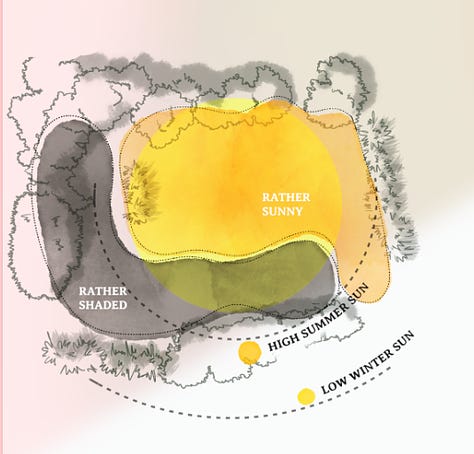
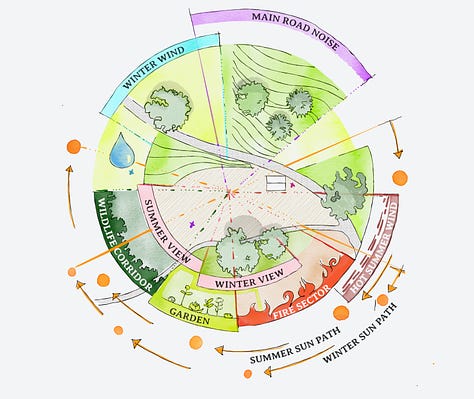
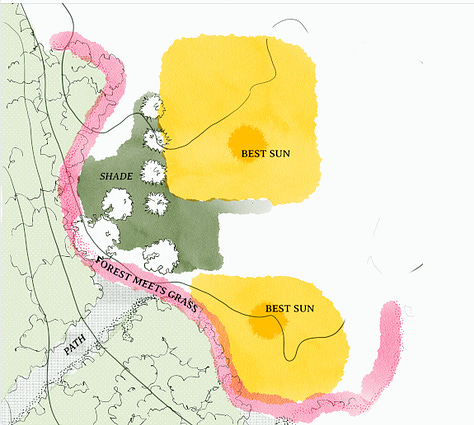
I love their attentive approach to truly slow down and listen to the land. Beyond that, Jo is very active in the community development movement and developing adjacent tools for builders like you.
Due Diligence
For paid subscribers, I’ve created this checklist of site analyses you want to request so you know what to ask for when you are surveying land for purchase or figuring what you will build on your existing property.
What you want to investigate about your land
This process begins with a thorough understanding of the natural and built environments, integrating both tangible and intangible factors to create a holistic picture of the site.
Keep reading with a 7-day free trial
Subscribe to Terrenity to keep reading this post and get 7 days of free access to the full post archives.





